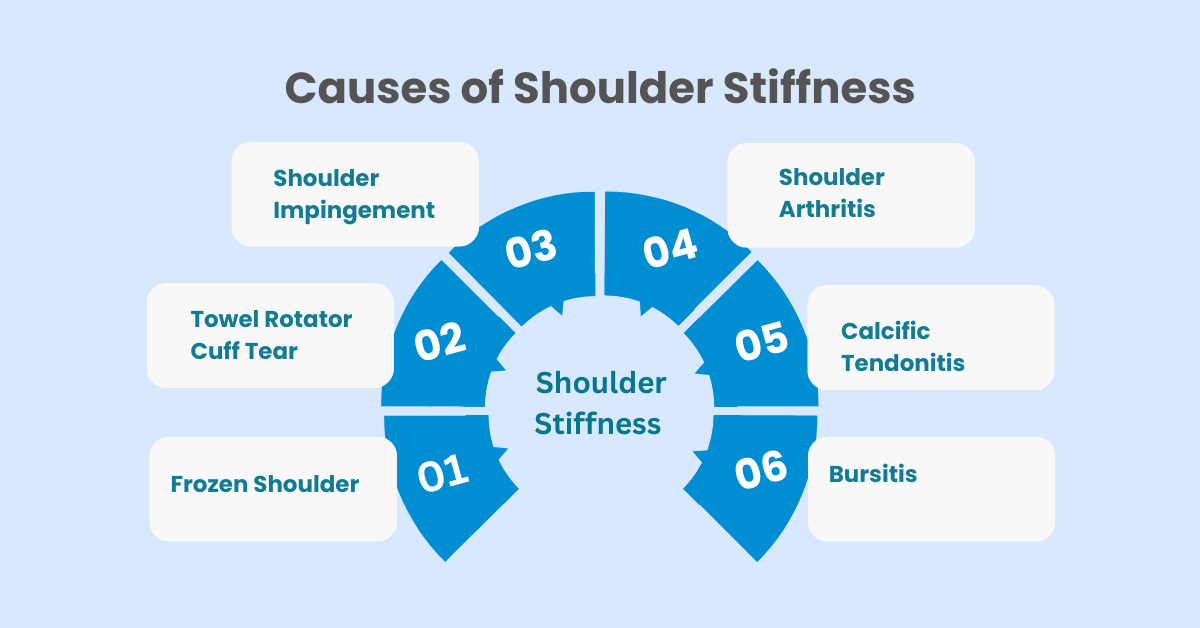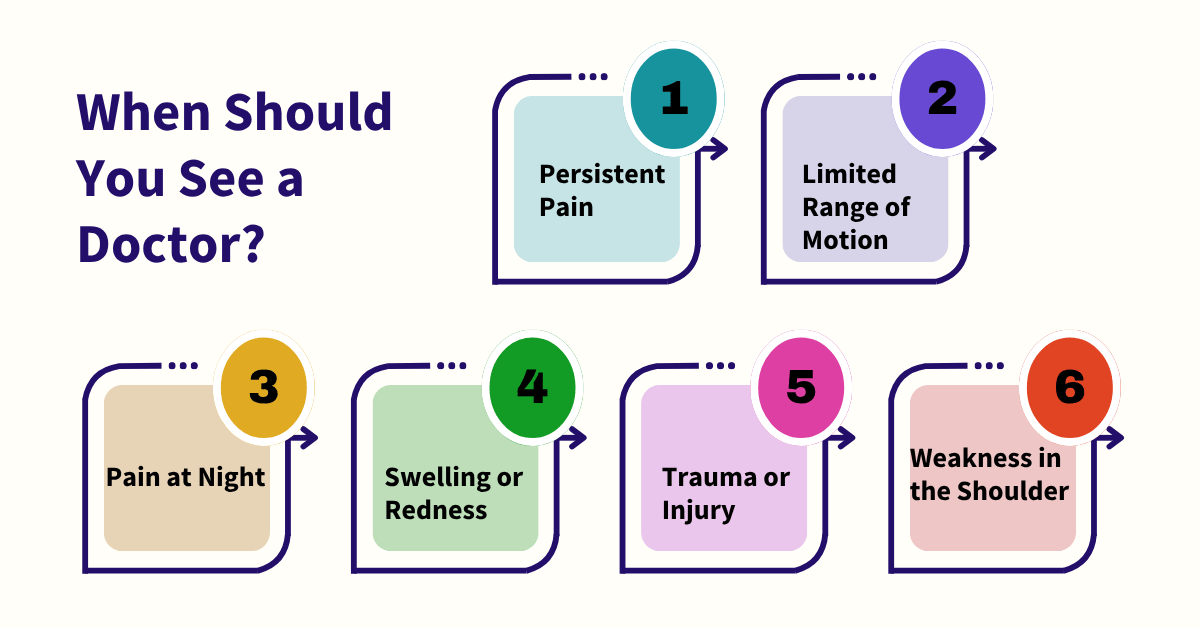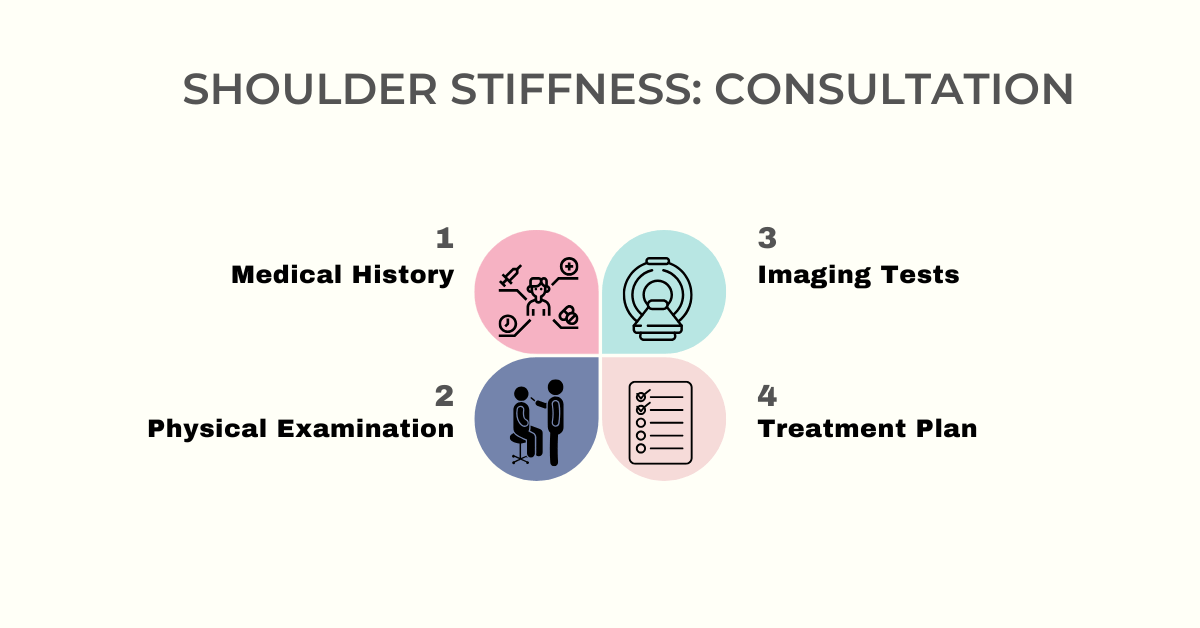Shoulder Stiffness Treatment
Shoulder stiffness is a common issue that many people experience at some point in their lives. It can range from a mild discomfort to an incapacitating pain that limits your daily activities. While some cases of shoulder stiffness can resolve on their own, others may require professional attention. Knowing when to seek medical help is crucial to prevent further complications and get the right treatment.

In this blog, we will explore the different causes of shoulder stiffness, when you should see a doctor, and what you can expect during a medical consultation. Understanding the symptoms and seeking timely treatment can help you get back to your normal routine quickly. We will also introduce Dr. Chintan Vinod Desai, a highly skilled Shoulder Surgeon, who specializes in shoulder conditions and their treatment.
Causes of Shoulder Stiffness
Shoulder stiffness can result from a variety of causes, both minor and serious. It’s essential to recognize the signs and understand their underlying causes.

- Frozen Shoulder (Adhesive Capsulitis)
Frozen shoulder is a condition where the shoulder joint becomes stiff, making it difficult to move. This typically develops slowly and can cause severe pain, particularly when trying to move the arm overhead. It’s often associated with long-term immobility, such as after an injury or surgery. - Rotator Cuff Tear
The rotator cuff is a group of muscles and tendons that stabilize the shoulder. A tear in one of these tendons can cause stiffness and pain. This can happen from repetitive overhead movements or an acute injury. - Shoulder Impingement
This occurs when the tendons of the rotator cuff become irritated and inflamed, often causing pain and stiffness. Activities like throwing or lifting can exacerbate this condition. - Shoulder Arthritis
Arthritis, particularly osteoarthritis, can cause stiffness in the shoulder due to the wear and tear of the joint cartilage. As the cartilage wears away, the bones in the joint may rub against each other, leading to pain and stiffness. - Calcific Tendonitis
This condition involves the formation of calcium deposits in the tendons of the shoulder, leading to pain and stiffness. It can occur due to overuse or age-related changes in the tendons. - Bursitis
Bursitis occurs when the fluid-filled sacs (bursae) in the shoulder become inflamed. It can lead to pain, stiffness, and swelling, especially when trying to move the shoulder.
When Should You See a Doctor?
Knowing when to seek medical attention is crucial in managing shoulder stiffness. Here are some signs that indicate it’s time to visit a doctor:

- Persistent Pain
If the pain in your shoulder persists for more than a few days or keeps coming back, it could indicate an underlying condition that needs medical attention. - Limited Range of Motion
If you’re unable to lift your arm or rotate your shoulder without pain or discomfort, it’s a sign that the stiffness may not resolve on its own and requires professional assessment. - Pain at Night
Experiencing shoulder pain while lying down or during sleep is a common symptom of several shoulder conditions, including frozen shoulder or rotator cuff issues. - Swelling or Redness
Swelling or redness in the shoulder joint may indicate an infection, inflammation, or injury. It’s essential to get these symptoms checked promptly. - Trauma or Injury
If your shoulder stiffness follows a fall, car accident, or sports injury, it’s important to seek medical attention immediately to rule out fractures or dislocations. - Weakness in the Shoulder
If your shoulder feels weak or if you have difficulty lifting objects that you could previously handle, it may be a sign of a rotator cuff tear or another serious condition.
What to Expect During Your Consultation
When you see a doctor for shoulder stiffness, they will perform a thorough evaluation to determine the cause of your symptoms. Here’s what you can expect during the visit:

- Medical History
The doctor will ask about your medical history, including any recent injuries, surgeries, or activities that might have contributed to the stiffness. - Physical Examination
The doctor will check for swelling, tenderness, and range of motion in your shoulder. They may also perform specific tests to assess strength and mobility. - Imaging Tests
Depending on the severity of your symptoms, the doctor may recommend imaging tests such as X-rays, MRIs, or ultrasounds to get a clearer picture of the structures inside your shoulder. - Treatment Plan
Based on the diagnosis, the doctor will outline a treatment plan that may include physical therapy, medications, injections, or, in some cases, surgery.
Dr. Chintan Vinod Desai – Shoulder Surgeon
Dr. Chintan Vinod Desai is a highly skilled consulting Shoulder Surgeon based in Mumbai. With years of experience in treating a wide range of shoulder conditions, Dr. Desai specializes in performing advanced shoulder surgeries using the latest techniques. His expertise includes the treatment of conditions such as shoulder instability, frozen shoulder, impingement, rotator cuff tears, shoulder arthritis, and calcific tendonitis.
Dr. Desai is known for his compassionate approach to patient care, focusing on a personalized treatment plan that prioritizes the patient’s well-being and recovery. Whether you’re dealing with a sports injury, age-related wear and tear, or post-surgical complications, Dr. Desai is committed to helping you achieve pain relief and regain shoulder mobility.
Frequently Asked Questions (FAQs)
1. What causes shoulder stiffness?
Shoulder stiffness can be caused by a variety of factors including frozen shoulder, rotator cuff injuries, arthritis, and tendonitis. Overuse, injury, and age-related changes can also contribute to stiffness.
2. How long does it take for a frozen shoulder to heal?
Frozen shoulder typically develops over several months and may take 1 to 3 years to fully resolve. However, with appropriate treatment, recovery time can be shortened significantly.
3. Can physical therapy help with shoulder stiffness?
Yes, physical therapy is often an essential part of shoulder stiffness treatment. It helps improve mobility, strengthen muscles, and reduce pain.
4. Is shoulder stiffness always a sign of a serious condition?
Not necessarily. Mild stiffness can be caused by overuse or poor posture, but persistent or severe stiffness may indicate a more serious condition that requires medical attention.
5. Can I prevent shoulder stiffness?
Maintaining good posture, avoiding repetitive strain, warming up before physical activities, and engaging in regular shoulder exercises can help prevent shoulder stiffness.
Conclusion
Shoulder stiffness can range from a minor inconvenience to a serious health issue. It’s important to recognize the signs early and seek medical help when necessary. Timely diagnosis and treatment can prevent long-term complications and help you regain full mobility. If you’re experiencing persistent shoulder stiffness, Dr. Chintan Vinod Desai, a renowned Shoulder Surgeon, can provide the expert care you need to get back to your normal routine. Don’t wait until the pain worsens—take action today and prioritize your shoulder health.

